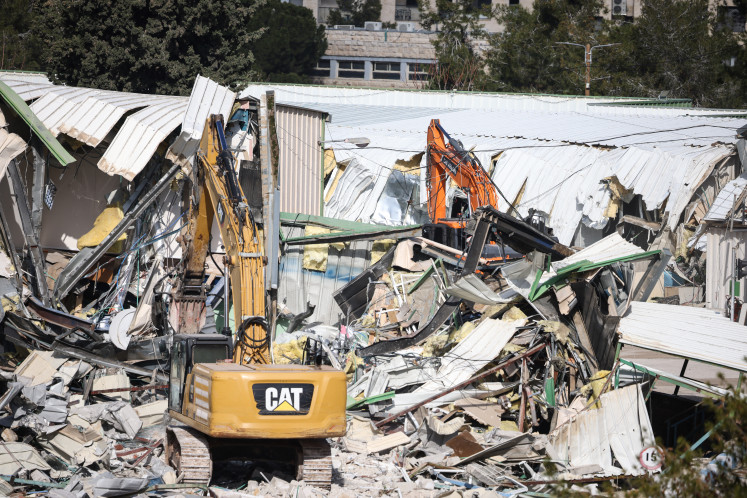Popular Reads
Top Results
Can't find what you're looking for?
View all search resultsPopular Reads
Top Results
Can't find what you're looking for?
View all search resultsYoung voters see legislative institutions as the most corrupt
Young voters consider legislative institutions such as the House of Representatives (DPR) and Regional Legislative Councils (DPRD) as the most corrupt bodies in the country, due to their recurrent corruption practices
Change text size
Gift Premium Articles
to Anyone
Y
oung voters consider legislative institutions such as the House of Representatives (DPR) and Regional Legislative Councils (DPRD) as the most corrupt bodies in the country, due to their recurrent corruption practices.
In the latest survey conducted by Transparency International Indonesia (TII), young voters gave the two institutions a score of 4.33 out of 5.
Other institutions considered to commit corrupt practices frequently include political parties, with a score of 3.88, the police with 3.84, judiciary with 3.69 and civil servants with 3.05.
'In the opinion [of respondents], the police are still considered to be the third most corrupt institution. The first and the second positions are held by the DPR/DPRD and political parties, respectively. This is worrying,' said TII youth department head, Lia Toriana, as quoted by kompas.com.
Lia said the high rate could not be separated from the ineffectiveness in fighting corruption on the part of the government. Nearly 45 percent of young voters said that corruption eradication efforts from the government did not run as well as expected.
However, she admitted that not all attempts to eradicate corruption were bad. Young voters believe there have not been any positive changes in the efforts to wipe out corrupt practices.
'Corruption still cannot be separated from daily life. For example, members of [respondents'] families are still asked to give money to access public services, by the police and officials at neighborhood community units,' she said.
The survey involved 993 respondents aged between 17 and 21 from five regions of Jakarta, not including Kepulauan Seribu (Thousand Islands). The survey used proportionate stratified random sampling with a 2.3 percent margin of error. (put)










